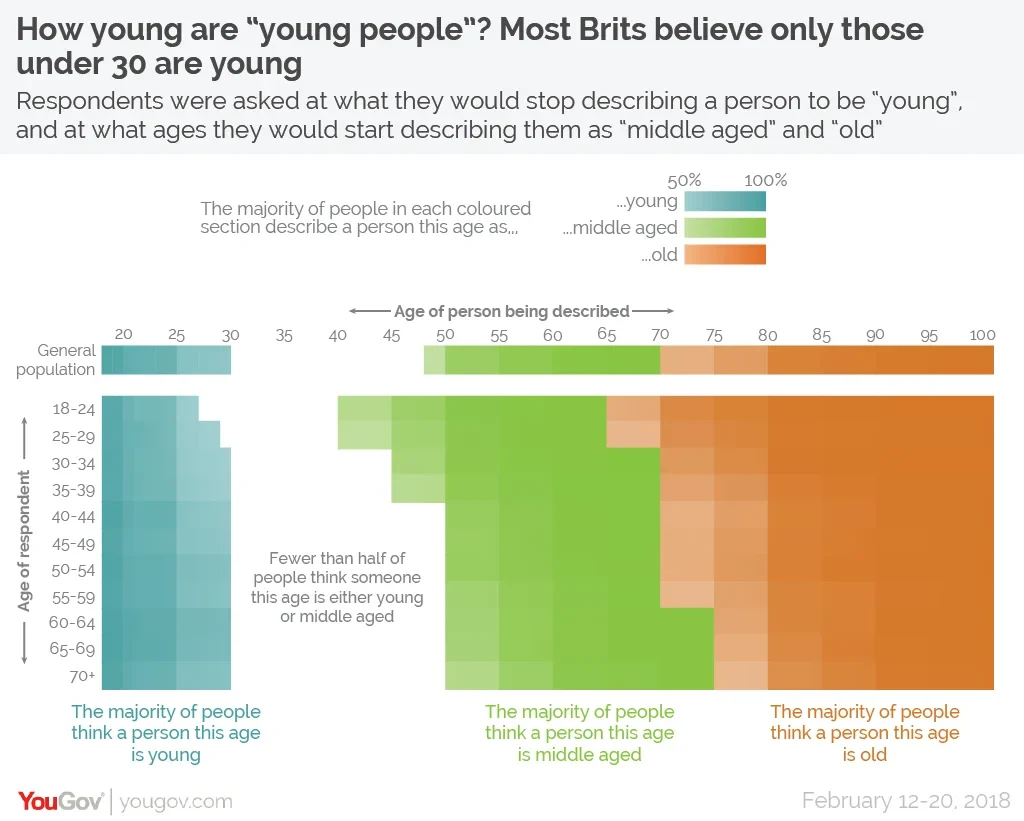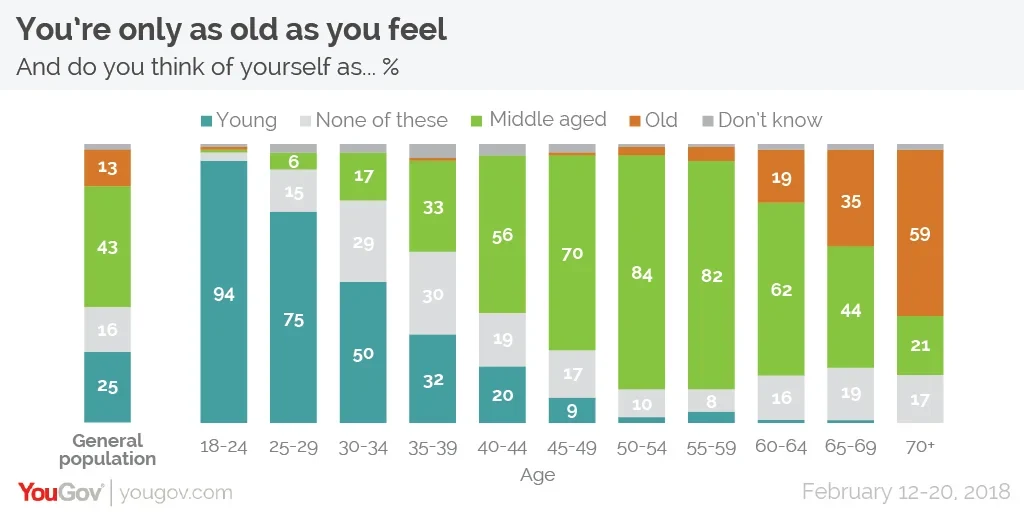YouGov examines where the public puts the boundaries of youth, middle age and old age
The recent debate in political and polling circles over whether or not a 'youthquake' was responsible for the 2017 election result has raised an even more fundamental question: who, exactly, are “young people”? Most frequently political commentators seem to use the term to describe those under the age of 25, but at least one has suggested that ‘youth’ extends as far as the mid-forties.
As The Economist pointed out recently, it is important that policymakers’ definitions of both young and old are in step with those of the general public:
“In much of the rich world 65 still marks the beginning of old age. Jobs end, subsidised bus travel begins and people start to be seen as a financial burden rather than an asset to the state … words like ‘old’ and ‘retired’ signal to policymakers, as well as to old people themselves, how they ought to behave and be treated by governments, businesses and employers.”
Such an argument could be applied to young people as well (see for example government policy allowing for lower minimum wage rates for the under-25s). If the main parties misjudge the age period during which people consider themselves young, and base their policies accordingly, they may end up neglecting large numbers of voters – for instance, making young people policy primarily about university access and tuition fees could alienate many young people who are older than university age.
Now new YouGov research reveals where Britons believe the boundaries of key life stages like youth, middle age and old age lie.
Britons believe that youth ends by the age of 30
The general consensus is that youth lasts up to, and including, the age of 29. Once a person has reached the age of 30, the majority of Brits no longer consider them to be young.
Likewise, the point at which most Brits believe a person has become middle aged is 48, while 70 is the age by which a majority of people believe someone has gotten old.

The age group with no name
The results also reveal a no-man's land age group – an age range that the English language doesn't seem to have a term for. The majority of Brits do not consider a person aged 30-47 to be either young or middle aged.
The older you are, the later "old" gets
Unsurprisingly, perceptions of when "young" ends and "middle age" and "old" begin are influenced by a person’s own age. Generally speaking, the younger people are the earlier they place the boundaries for each of the stages. For instance, most 18-24 year olds consider a person to have reached middle age by the age of 40, while among those aged 45 and over most don’t think that stage of life is reached until the age of 50.
While on the face of it 2017 Conservative and Labour voters might appear to have slightly different views, this is almost entirely accounted for by the fact that Conservative voters tend to be older and Labour voters tend to be younger, and their views change accordingly. While there is a small statistically significant difference between the two voting groups, in practice this only amounts to a difference of at most a single year on where they place the milestones.
You’re only as old as you feel
YouGov also asked Brits to say in which life stage they would put themselves. People’s self-perceptions broadly correspond with the results above, although many people in their 30s consider themselves “young” despite relatively few having used the term to describe other people of the same age.
The vast majority of 18-29 year olds (75-94%) count themselves as young, as do half (50%) of 30-34 year olds. The 35-39 year old age group is the most confused about where they fit in: 33% consider themselves middle aged, 32% still feel young and 30% don’t believe they fit in any of the categories we put to them.

Most Brits aged 40 to 64 consider themselves middle aged, as do a plurality (44%) of those aged 65-69. People in their 50s are the most likely to self-identify as middle aged (82-84%).
Very few consider themselves old until they hit at least 60. One in five 60-64 year olds (19%) consider themselves old, as do a third (35%) of 65-69 year olds. Only the 70+ age group features a majority of people (59%) that self-identify as old.
Photo: Getty









